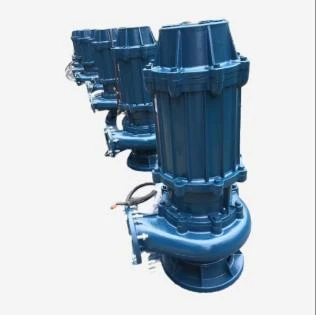Lithuanian
- Afrikaans
- Albanian
- Amharic
- Arabic
- Armenian
- Azerbaijani
- Basque
- Belarusian
- Bengali
- Bosnian
- Bulgarian
- Catalan
- Cebuano
- Corsican
- Croatian
- Czech
- Danish
- Dutch
- English
- Esperanto
- Estonian
- Finnish
- French
- Frisian
- Galician
- Georgian
- German
- Greek
- Gujarati
- Haitian Creole
- hausa
- hawaiian
- Hebrew
- Hindi
- Miao
- Hungarian
- Icelandic
- igbo
- Indonesian
- irish
- Italian
- Japanese
- Javanese
- Kannada
- kazakh
- Khmer
- Rwandese
- Korean
- Kurdish
- Kyrgyz
- Lao
- Latin
- Latvian
- Lithuanian
- Luxembourgish
- Macedonian
- Malgashi
- Malay
- Malayalam
- Maltese
- Maori
- Marathi
- Mongolian
- Myanmar
- Nepali
- Norwegian
- Norwegian
- Occitan
- Pashto
- Persian
- Polish
- Portuguese
- Punjabi
- Romanian
- Russian
- Samoan
- Scottish Gaelic
- Serbian
- Sesotho
- Shona
- Sindhi
- Sinhala
- Slovak
- Slovenian
- Somali
- Spanish
- Sundanese
- Swahili
- Swedish
- Tagalog
- Tajik
- Tamil
- Tatar
- Telugu
- Thai
- Turkish
- Turkmen
- Ukrainian
- Urdu
- Uighur
- Uzbek
- Vietnamese
- Welsh
- Bantu
- Yiddish
- Yoruba
- Zulu
Telephone: +86 13120555503
Email: frank@cypump.com
Gru . 28, 2024 17:44 Back to list
Efficient Pump Solutions for Wastewater Management and Sewage Systems
Understanding Sewage Pumps Essential Components for Waste Management
Sewage pumps play a critical role in managing wastewater, ensuring that sewage is effectively transported from residential and commercial properties to treatment facilities. With the growing concern over environmental issues and the need for effective waste management solutions, understanding the functions and types of sewage pumps is essential for homeowners and businesses alike.
What is a Sewage Pump?
A sewage pump is a type of submersible pump specifically designed to handle human waste and other materials found in sewage. Unlike standard water pumps, sewage pumps are capable of handling solid waste and large volumes of liquid. They work by lifting wastewater from lower to higher elevations, making it feasible for sewage to travel through plumbing systems that lead to sewer lines.
Types of Sewage Pumps
There are two primary types of sewage pumps submersible pumps and centrifugal pumps. Each has its unique features and application benefits.
1. Submersible Sewage Pumps These pumps are designed to operate underwater and are commonly submerged in a sewage collection pit or tank. Because they are situated below the surface, they can effectively manage wastewater without requiring external suction devices. Submersible pumps are efficient, quiet, and often seen as the most effective solution for residential sewage systems. They are particularly useful in areas where gravity flow is insufficient to transport waste.
2. Centrifugal Sewage Pumps These pumps utilize a rotating impeller to create centrifugal force, which pushes the sewage away from the pump and into the discharge pipe. Centrifugal pumps can be primed manually or self-priming, making them versatile in various applications. They are widely used in industrial settings where rapid wastewater removal is essential due to high volumes.
3. Grinder Pumps A subcategory of sewage pumps, grinder pumps are equipped with multiple blades that grind solid waste into smaller pieces before pumping it away. This feature makes them ideal for situations where gravity feeding is not feasible, such as homes located below the main sewer line.
Applications of Sewage Pumps
Sewage pumps are employed in numerous applications, including
- Residential Use In homes, sewage pumps handle wastewater from bathrooms, kitchens, and other facilities. They are especially vital in basements, where gravity does not aid sewage flow.
pump for sewage

- Commercial Facilities Businesses with large waste output or complex plumbing systems rely on sewage pumps to manage effluent efficiently, ensuring compliance with environmental regulations.
- Industrial Operations Industries generate substantial volumes of wastewater. Here, robust sewage pumps are essential to managing waste and protecting the environment.
- Municipal Waste Treatment Sewage pumps are fundamental components of municipal wastewater treatment plants, where they transport large quantities of sewage for processing and purification.
Maintenance and Troubleshooting
To ensure optimal performance and longevity of sewage pumps, regular maintenance is necessary. Key practices include
- Routine Inspections Regularly checking for clogs, leaks, or unusual noises can help identify potential issues before they become significant problems.
- Cleaning Removing debris and buildup can prevent performance issues and extend the life of the pump.
- Professional Servicing Depending on the complexity of the system, periodic professional inspections may be warranted to maintain efficiency and identify wear and tear.
In terms of troubleshooting, common issues may include power failure, blockages, or motor malfunctions. Understanding these issues and knowing when to seek help from a professional can save time and money in the long run.
Conclusion
In summary, sewage pumps are essential for effective wastewater management in various settings. Understanding their types, applications, and maintenance needs plays a crucial role in ensuring that both residential and commercial environments manage waste efficiently and responsibly. By prioritizing proper functioning and upkeep of sewage pumps, homeowners and businesses can contribute to a sustainable future, protecting the environment while effectively handling their waste.
-
ISG Series Pipeline Pump - Chi Yuan Pumps | Energy Efficiency&Compact Design
NewsAug.03,2025
-
ISG Series Vertical Pipeline Pump - Chi Yuan Pumps Co., LTD.|High Efficiency, Low Noise, Durable
NewsAug.02,2025
-
ISG Series Vertical Pipeline Pump - Chi Yuan Pumps | High Efficiency, Low Noise
NewsAug.02,2025
-
ISG Series Vertical Pipeline Pump- Chi Yuan Pumps Co., LTD.|High Efficiency&Compact Design
NewsAug.02,2025
-
Heavy-Duty Mining Sludge Pumps - Wear-Resistant Slurry Handling
NewsAug.02,2025
-
Horizontal Split Case Pump with GPT-4 Turbo | High Efficiency
NewsAug.01,2025










